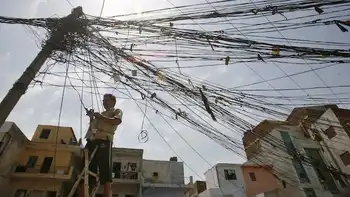Replacing streetlights could save Port Hope big bucks
Switching to the optimal induction system would cost $3.6 million and add 339 tonnes of carbon — a savings of $2.2 million and 444 tonnes of carbon, she told Port Hope council.
“Ontario is helping municipalities cut their energy costs and reduce their environmental impact by exploring leading-edge green technologies,” Ms. Davidson said.
“Municipalities can apply for up to $500,000 in grants for showcase projects through Ontario’s $20-million Municipal Eco Challenge fund (MECF).”
She said Port HopeÂ’s public works department is finalizing a funding application, of which one requirement is a resolution of council supporting the proposed project. The deadline to submit an application is Oct. 12.
“Streetlights account for approximately 13% of the total electrical energy consumed by municipalities which is equal to a significant range of 0.9 to 1.0 billion kilowatt (KW) hours a year,” Ms. Davidson said.
She told council there are 1,523 streetlights within Port Hope that represent an electrical load of 277 KW and an energy consumption of 1,936,276 KWHrs annually.
The new system uses 50% of the energy to produce the same amount of light as the high-pressure sodium lights, Ms. Davidson said, and has a longer lamp life at 100,000 hours, compared to sodium at 24,000, as well as other features such as instant start and low light depreciation.
“Across Ontario, municipal electricity consumption also causes at least 1.5 million tonnes of carbon dioxide emissions a year,” Ms. Davidson said. “That’s equivalent to the annual emissions from 300,000 cars. The conversion of the existing streetlights to the optimal lighting levels using induction technology, translates into a reduction of 505 tonnes of carbon a year. Port Hope’s impact related to streetlights is 783 tonnes of carbon per year, which is equivalent to 158 cars.”
Bruce Craig of Lakefront Lighting said the Town of Cobourg is only saving $1.3 million compared to the potential $2.2 million for Port Hope, but thatÂ’s because the town had already reduced lighting levels.
“Since we found induction lighting, we fell in love with it,” Mr. Craig said.
Lakefront Lighting is part of the restructured Cobourg Public Utilities.
Ms. Davidson recommended council include induction lighting in the 2009 budget deliberations.
Announcements on MECF monies are to be made in December.
Related News

Sub-Saharan Africa has a huge electricity problem - but with challenge comes opportunity
PORTO NOVO - Sub-Saharan Africa has an electricity problem. While the world as a whole has made great strides when it comes to providing access to electricity (the world average is now 90 per cent with access, up from 83 per cent in 2010), southern and western African states still lag far behind.
According to Tracking SDG7: The Energy Progress Report, produced by a consortium of organisations including the World Bank, the International Energy Agency and the World Health Organization, 759 million people were without electricity in 2019 and threequarters of them were based in sub-Saharan Africa. At just seven per…





